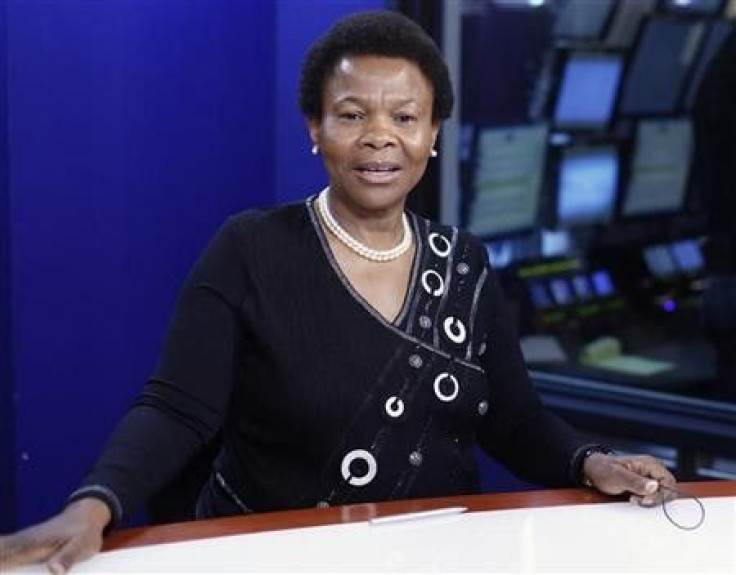S.Africa minister sinks mining nationalisation idea

Nationalising South Africa's mines is not the option, mines minister Susan Shabangu said on Tuesday in her strongest comments in a year against an idea that has unnerved investors in Africa's biggest economy.
Pressured at a mining industry conference to counter radical elements in the African National Congress (ANC) demanding state ownership of mines, Shabangu reiterated that nationalisation was not currently policy.
But she went on to say that nationalisation would mean South Africa missing out on another global commodities boom, just as it did in 2000-08 when investment soared in the likes of China, Brazil and Indonesia but stagnated in South Africa because of policy clouds hanging over the industry.
Is nationalisation going to give us jobs? No. We have got to make sure that we become responsible and we attract more investments, because we do need investments in South Africa, she told a news conference.
We have a boom in the mining sector. We can't afford to miss this opportunity. We lost it the last time. It cannot happen again. I still believe, I feel very strongly, that nationalisation would not be the option for South Africa.
For years the pillar of white economic power, mining accounts for 8 percent of South African GDP and directly employs more than 500,000, but has struggled to adapt and grow since the end of white-minority apartheid rule in 1994.
In the last few months, the ANC has placed mining at the heart of plans to tackle 25 percent unemployment but most of its ideas involve more, not less, state involvement, leading to scepticism it will be able to turn the industry around.
ROAD TO RUIN
Earlier, mining giant Anglo American told the guardians of the world's fifth biggest mining economy not to heed the false prophets of nationalisation.
Mining companies simply will not invest if they cannot be assured that the assets they create will be secure, chief executive Cynthia Carroll said. In ignoring this truth, the false prophets who argue for nationalisation are advocating the road to ruin -- a path we must not follow.
The ANC Youth League, which has spearheaded the drive to take over South Africa's mines, dismissed Shabangu's comments as false assurances to mining capitalists that ignored internal party research and debate on the issue.
At last year's mining conference, Shabangu said nationalisation would not happen in my lifetime but subsequently softened her tone, leading to suggestions the idea had traction in the corridors of power.
Much of the political impetus behind Youth League leader Julius Malema stems from the failure of post-apartheid affirmative action, or empowerment, to spread wealth and control of the economy beyond whites and a small black elite.
If there were broad-based economic empowerment, the majority of South Africans would feel they have a direct stake in the economy, said mining expert Peter Leon at law firm Webber Wentzel. This would influence the outcome of the nationalisation debate.
Mine union officials, analysts and some senior members of the ANC also suspect Malema may be a front for well-connected black investors who want the state to bail them out of failed mining ventures.
Whatever the reality, policy uncertainty has caused the sector to shrink 1 percent a year in dollar terms since 2000, even though South Africa remains the world's biggest platinum and No. 3 gold producer.
The industry has also been plagued by a series of controversies in the administering of mining and prospecting rights, although Shabangu said on Monday a planned overhaul of the system would eliminate graft and errors.
© Copyright Thomson Reuters 2024. All rights reserved.











